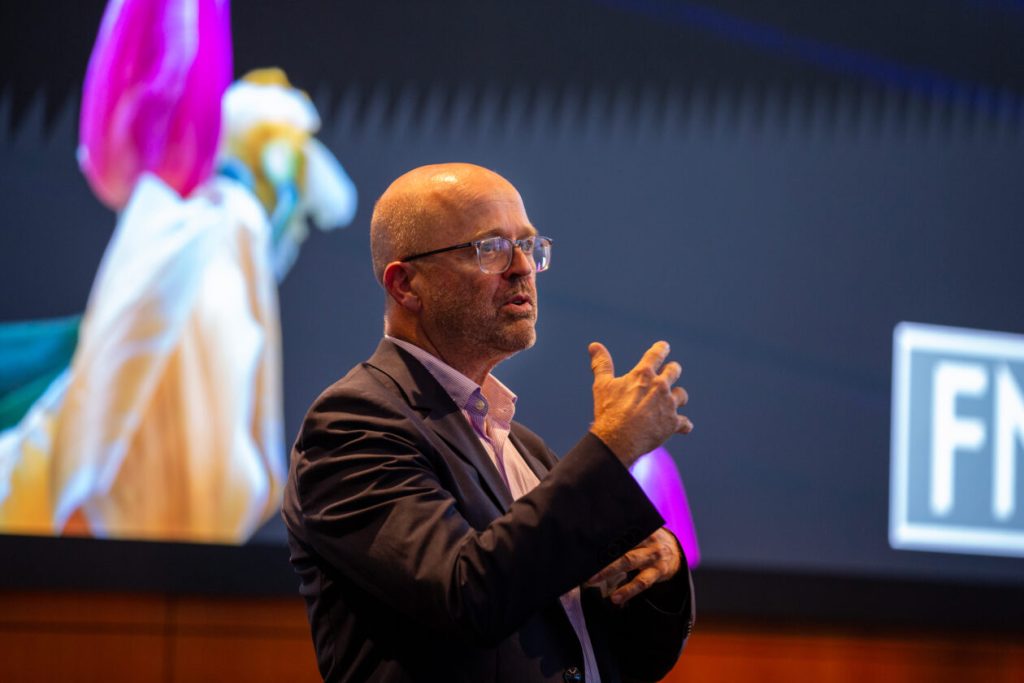Summarize this content to 2000 words in 6 paragraphs
Christian Luscher, a neuroscientist at the University of Geneva, presenting on addiction at the Allen Institute. (Allen Insitute Photo / Erik Dinnel)
Christian Luscher has spent years trying to figure out why people chase a fix that comes at such a high cost.
Luscher, a neuroscientist at the University of Geneva, explained the biology of addiction in a talk at the Allen Institute last week. The event took place just blocks from downtown Seattle, where an increasing amount of overdoses are occuring, driven in part by synthetic drugs such as fentanyl.
Luscher said fentanyl is 100 times more potent than morphine. “The onset of action is very fast,” he said. “This is something that leads to its high addiction liability.”
In a recent study of fentanyl, Luscher’s team found that different parts of the brain control the desire to use drugs and the compulsive use seen in addiction.
Many drugs, including opiates, cocaine and nicotine, increase dopamine levels in the brain, producing a temporary euphoria. But over time, some people continue to use drugs for fear of the opposite experience. The best way to alleviate withdrawal “is to take the drug again,” Luscher said.
Until now, scientists believed that the same neurological pathway controlled positive and negative behavioral reinforcement. Luscher’s findings suggest otherwise, which could expand therapeutic options.
Overdose deaths in King County document the impact of fentanyl compared to other drugs. (Chart via King County)
There are drugs that can reverse an overdose or treat the symptoms of withdrawal, and legal opioids can substitute for illicit ones in a controlled setting. But no magic pills to quell cravings for fentanyl exist.
“Right now, there’s really no good treatment for addiction,” said Hongkui Zeng, director of the Allen Institute for Brain Science.
The Allen Institute has several new studies exploring how different drugs change brain activity, building on previous high-profile brain mapping studies. By documenting baseline brain states, scientists can identify where and when things change.
Zeng said the Allen Institute is “very hopeful” that this research could lead to better causal treatment options. In the meantime, therapies like deep brain stimulation that send electrical impulses to specific regions might be able to help people struggling with addiction.
Some startups are trying to help as well. Boulder Care, a Portland, Ore.-based startup that provides telehealth treatment for people with opioid and alcohol use disorder, raised $35 million in new funding in May.
There were 1,088 fentanyl-involved overdose deaths in King County last year, a record high that mirrored national trends.
Seattle Mayor Bruce Harrell in May announced plans to invest $7 million in recovery and treatment programs, part of a larger effort to curb the opioid crisis and revive downtown.


